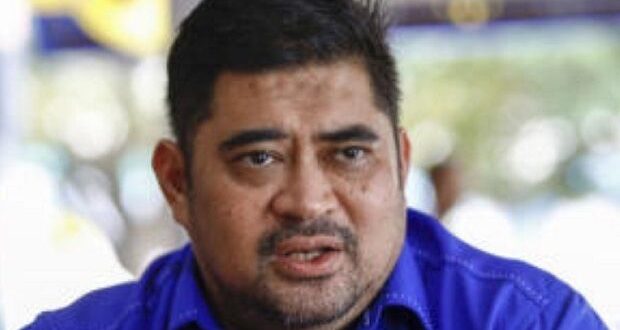KOTA KINABALU: Heavy rain in the past week brought relief to drought-hit Papar district residents. However, the joy was short-lived.
Just as the district was restarting all its water treatment plants that were forced to shut down due to seawater intrusion caused by the drying up of Sungai Papar, they have been forced to shut down again as there was seawater contamination at the treatment plant.
Deputy Chief Minister Datuk Shahelmey Yahya said the Sabah Water Department was forced to close the Limbahau water treatment plant on Thursday after it recorded high levels of salinity.
Shahelmey, who is state Works Minister, said the Limbahau treatment plant has a capacity of producing 10 million litres per day (MLD).
Another water treatment plant not far from the Limbahau plant operated by private water producer Jetama Sdn Bhd was also forced to reduce its production capacity from 13MLD to 9MLD as one of the plant’s inlets was also exposed to seawater.
He said the closure is necessary as water flow from upstream Sungai Papar catchment area reduced significantly after the rain and seawater intrusion moved upstream towards the Limbahau treatment plant.
“I was informed that the Sabah Water Department had to shut down the treatment plant again on the second day of Hari Raya due to high saline levels,” he added.
“We stopped the operation of the water treatment plant to prevent the seawater from being processed as treated water,” he told reporters here.
Shahelmey said there is now an overall shortage of 14MLD in the Papar district with a population of 150,000 people.
He said the delivery of water using tankers to all the affected residents in the district was reactivated.
“We hope it rains again soon, especially in the catchment areas, as it helps push back the seawater from entering the water treatment intake points.
“The level of salinity should not reach a level that the water cannot be treated,” he said.
The maximum salinity treatable is 120mg per litre (MGL) but the salinity level exceeded 6,000MGL.
Papar district declared a drought emergency on March 13, but moderate to heavy rains on April 6 and 7 helped reduce the seawater intrusion, with treatment plants restarting ahead of the Hari Raya Aidilfitri celebrations.
Meanwhile, the Sabah Water Department continues to send water to residents in Pulau Sebatik as the dam there had dried up since early January, but light and moderate rains brought some relief to consumers in early April.
However, the water treatment plant there continues to operate on a minimal level with water still being delivered to residents from tube well water sources.
 BeritaKini.biz Berita Viral Terkini di Malaysia
BeritaKini.biz Berita Viral Terkini di Malaysia





